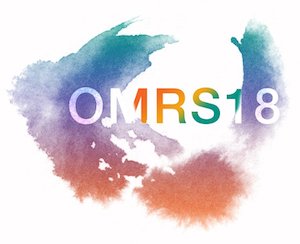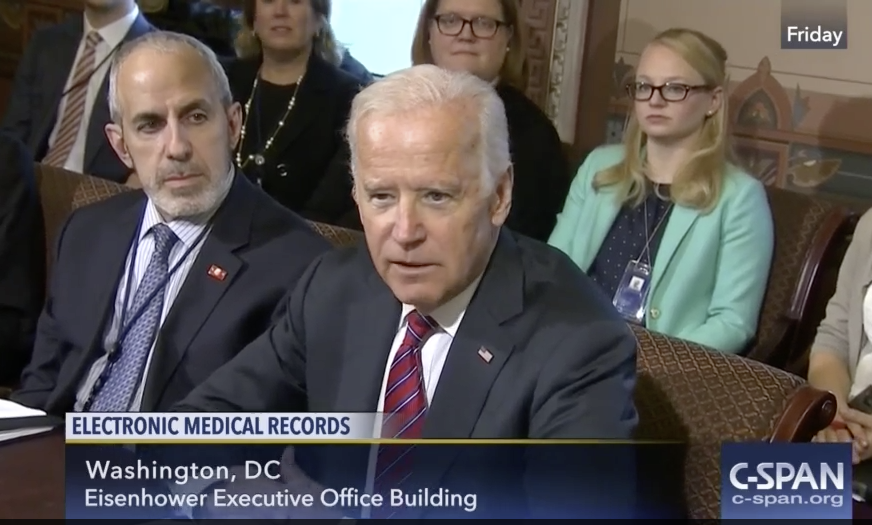Open Health News
See the following -
AMA Call To Action On Health Records Should Tell Doctors To Heal Themselves
The American Medical Association (AMA) is one of the most powerful and well-known institutions in this country. Opposition from the AMA helped to bury hopes for universal healthcare back in the Harry Truman presidency, and now the AMA maintains a stranglehold on Current Procedural Terminology (CPT) codes and therefore on any innovation in reporting medical services. So when the AMA puts out a press release titled AMA Calls for Design Overhaul of Electronic Health Records to Improve Usability, describing the serious usability problems of EHRs, and announcing the release of their “solution” white paper titled Improving Care: Priorities to Improve Electronic Health Record Usability, headlines get made and policy-makers start to stir. Can a snap of the fingers by the AMA bring the EHR industry in line? Read More »
- Login to post comments
Application Deadline to Host OpenMRS 2018 Annual Implementers Meet Coming Up
 The deadline to apply to host the 2018 International OpenMRS Implementers conference is coming up on April 30 [updated]. Nations that want to host the meeting need to answer the detailed questionnaire by that time. For those Open Health News readers who have missed one of the greatest health IT stories of the decade, the Government of Uganda hosted the 2016 OpenMRS meeting in their capital city of Kampala. The conference was such an extraordinary success that a large number of other national governments volunteered to host the 2017 Implementer's conference. There are currently close to 40 countries around the world where OpenMRS is being implemented throughout the county in large-scale deployments.
The deadline to apply to host the 2018 International OpenMRS Implementers conference is coming up on April 30 [updated]. Nations that want to host the meeting need to answer the detailed questionnaire by that time. For those Open Health News readers who have missed one of the greatest health IT stories of the decade, the Government of Uganda hosted the 2016 OpenMRS meeting in their capital city of Kampala. The conference was such an extraordinary success that a large number of other national governments volunteered to host the 2017 Implementer's conference. There are currently close to 40 countries around the world where OpenMRS is being implemented throughout the county in large-scale deployments.
- The Future Is Open
- Login to post comments
Burgess Bill Addresses Interoperability, the Leading Health IT Issue in the US
 Health care reformers around the country should be jumping up to thank Representative Michael C. Burgess (R-Texas), an MD who is working with his staff to write a bill to promote Health IT interoperability. Readers of Open Health News probably know that interoperability--in simple terms, the ability of any authorized user to read a medical record from any source--has emerged as one of the two top burning issues of health IT, the other one being the lack of usability of proprietary/lock-in electronic health records (EHRs).
Health care reformers around the country should be jumping up to thank Representative Michael C. Burgess (R-Texas), an MD who is working with his staff to write a bill to promote Health IT interoperability. Readers of Open Health News probably know that interoperability--in simple terms, the ability of any authorized user to read a medical record from any source--has emerged as one of the two top burning issues of health IT, the other one being the lack of usability of proprietary/lock-in electronic health records (EHRs).
Community Health Network in Houston Leverages Open Source Tech to Help Victims of Hurricane Harvey
 Undaunted by the devastation caused by Hurricane Harvey in Houston, the Stephen F. Austin Community Health Network (SFA) responded to the crisis by leveraging open source technology to reach out to their patients and victims of the hurricane in areas of Texas that are virtually inaccessible. The Health Network, a Federally Qualified Health Center (FQHC) covering Brazoria County, is one of the areas hardest hit by Hurricane Harvey and currently recovering. Using an advanced cloud-based version of the OpenEMR software, the SFA Community Health Network has been able to treat patients in clinics physically unreachable by their medical providers.
Undaunted by the devastation caused by Hurricane Harvey in Houston, the Stephen F. Austin Community Health Network (SFA) responded to the crisis by leveraging open source technology to reach out to their patients and victims of the hurricane in areas of Texas that are virtually inaccessible. The Health Network, a Federally Qualified Health Center (FQHC) covering Brazoria County, is one of the areas hardest hit by Hurricane Harvey and currently recovering. Using an advanced cloud-based version of the OpenEMR software, the SFA Community Health Network has been able to treat patients in clinics physically unreachable by their medical providers.
- The Future Is Open
- Login to post comments
DHIS2 - Transforming Health IT Standards in the Developing World (Part 2)
 Rwanda's 2012 implementation of DHIS2 is one of at least 16 completed national rollouts of this free and open source health data management. A total of 54 countries are deploying DHIS2 on a national scale, 30 of which are in the pilot stage or early phase in their rollouts. Since DHIS2's release in 2006, NGOs and national governments in 60 countries have deployed DHIS2 for health-related projects, including patient health monitoring, improving disease surveillance and pinpointing outbreaks, and speeding up health data access.
Rwanda's 2012 implementation of DHIS2 is one of at least 16 completed national rollouts of this free and open source health data management. A total of 54 countries are deploying DHIS2 on a national scale, 30 of which are in the pilot stage or early phase in their rollouts. Since DHIS2's release in 2006, NGOs and national governments in 60 countries have deployed DHIS2 for health-related projects, including patient health monitoring, improving disease surveillance and pinpointing outbreaks, and speeding up health data access.
- Login to post comments
EHR Systems & Cost Transparency in the Healthcare Industry
 Cost transparency is obviously a big issue in the healthcare industry. Whether it’s the amazing variation in costs hospitals charge patients for similar medical procedures, or the costs associated with acquiring and implementing an Electronic Health Record (EHR) system for a hospital - Why are all these costs often carefully hidden? Is there something special about the healthcare industry that says – "Let's not talk about how much things really cost." Apparently, many industry leaders must feel that hospitals boards and patients have no need to know this information. Read More »
Cost transparency is obviously a big issue in the healthcare industry. Whether it’s the amazing variation in costs hospitals charge patients for similar medical procedures, or the costs associated with acquiring and implementing an Electronic Health Record (EHR) system for a hospital - Why are all these costs often carefully hidden? Is there something special about the healthcare industry that says – "Let's not talk about how much things really cost." Apparently, many industry leaders must feel that hospitals boards and patients have no need to know this information. Read More »
- Login to post comments
Fax Technologies Take Center Stage at HIMSS19 Exhibition
 One of the most surprising developments at HIMSS19 is the large number of companies exhibiting their Fax Technologies. Long derided by reporters, health IT consultants, and EHR vendors, fax technologies have been growing in leaps and bounds while EHRs continue to fail to deliver interoperability. Just a couple of years ago faxes were used in around 75% of medical records exchanges. Latest numbers indicate that faxes are now used to exchange more than 85% of medical records. Most people would react in horror to such figures. How could physicians and medical personnel rely on antiquated paper technologies like faxes? The real story to be found on the exhibit floor at the HIMSS 2019 conference is that what we are seeing is a rapid transition to digital fax technologies and platforms. And this transition is taking place because physicians and medical staff have figured out they work!
One of the most surprising developments at HIMSS19 is the large number of companies exhibiting their Fax Technologies. Long derided by reporters, health IT consultants, and EHR vendors, fax technologies have been growing in leaps and bounds while EHRs continue to fail to deliver interoperability. Just a couple of years ago faxes were used in around 75% of medical records exchanges. Latest numbers indicate that faxes are now used to exchange more than 85% of medical records. Most people would react in horror to such figures. How could physicians and medical personnel rely on antiquated paper technologies like faxes? The real story to be found on the exhibit floor at the HIMSS 2019 conference is that what we are seeing is a rapid transition to digital fax technologies and platforms. And this transition is taking place because physicians and medical staff have figured out they work!
- The Future Is Open
- Login to post comments
Global Open Source Health IT Project Gets $1 Million Donation From Cryptocurrency Philanthropy
 OpenMRS, Inc., an open source medical records platform used in developing countries, has received a $1 million donation from the Pineapple Fund, an $86 million cryptocurrency philanthropy created by an anonymous donor known only as “Pine.” Now in its 14th year, OpenMRS is being used in countries such as South Africa, Kenya, Rwanda, Lesotho, Zimbabwe, Mozambique, Uganda, Tanzania, Haiti, India, China, the United States, Pakistan, and many other places. This work is supported in part by many organizations including international and government aid groups, as well as for-profit and nonprofit corporations. Read More »
OpenMRS, Inc., an open source medical records platform used in developing countries, has received a $1 million donation from the Pineapple Fund, an $86 million cryptocurrency philanthropy created by an anonymous donor known only as “Pine.” Now in its 14th year, OpenMRS is being used in countries such as South Africa, Kenya, Rwanda, Lesotho, Zimbabwe, Mozambique, Uganda, Tanzania, Haiti, India, China, the United States, Pakistan, and many other places. This work is supported in part by many organizations including international and government aid groups, as well as for-profit and nonprofit corporations. Read More »
- Login to post comments
HIMSS19: What to Look Out For
 The 2019 HIMSS Annual Conference and Exhibition is in many ways a daunting event. Upwards of 40,000 people will likely attend this combination of educational experience, trade show, and overall shmooz-fest. But many people who go to this conference have a tough time: its sheer size can be quite overwhelming. There are pre-conference symposia, popular and important keynote speakers, educational sessions along with a myriad of topical tracks, and a massive exhibition hall that runs the full length of the Convention Center. Here are some of the things I'll be looking for this year to try to focus my activities...
The 2019 HIMSS Annual Conference and Exhibition is in many ways a daunting event. Upwards of 40,000 people will likely attend this combination of educational experience, trade show, and overall shmooz-fest. But many people who go to this conference have a tough time: its sheer size can be quite overwhelming. There are pre-conference symposia, popular and important keynote speakers, educational sessions along with a myriad of topical tracks, and a massive exhibition hall that runs the full length of the Convention Center. Here are some of the things I'll be looking for this year to try to focus my activities...
- Login to post comments
Hurricanes Harvey and Irma Draw the Line - Time for the US to Embrace Open Source Emergency and Disaster Response
 For nearly 20 years now the global open source community and applications have been a keystone to disaster relief efforts around the world. The enormous number of disaster relief applications and knowledge that has been developed through all these years, should, and needs to be leveraged in the current crisis. For that reason, Open Health News is starting a series of articles to highlight some of the most important solutions. A substantial portion the open source applications for emergency and disaster response that exist are actually already on the news website in the form of articles and resource pages.
For nearly 20 years now the global open source community and applications have been a keystone to disaster relief efforts around the world. The enormous number of disaster relief applications and knowledge that has been developed through all these years, should, and needs to be leveraged in the current crisis. For that reason, Open Health News is starting a series of articles to highlight some of the most important solutions. A substantial portion the open source applications for emergency and disaster response that exist are actually already on the news website in the form of articles and resource pages.
- The Future Is Open
- Login to post comments
Is The 1.5+ Trillion Dollar HITECH Act a Failure?
 Hopefully, the public statements made by President Obama and Vice President Biden will lead to a public debate over the monumental problems that the HITECH Act and proprietary EHR vendors have caused the American people. While the press continues to report the figure of $35 billion as the cost of implementing EHRs, that figure does not tell the entire story. Perhaps the next step is to provide accountability and transparency. That would start with firm numbers regarding the real costs of EHR implementations forced on an unprepared healthcare system by the HITECH Act.
Hopefully, the public statements made by President Obama and Vice President Biden will lead to a public debate over the monumental problems that the HITECH Act and proprietary EHR vendors have caused the American people. While the press continues to report the figure of $35 billion as the cost of implementing EHRs, that figure does not tell the entire story. Perhaps the next step is to provide accountability and transparency. That would start with firm numbers regarding the real costs of EHR implementations forced on an unprepared healthcare system by the HITECH Act.
- The Future Is Open
- Login to post comments
Is the Grace Hopper Open Source Day 2015 a Turning Point for Open Health and Humanitarian Open Source Projects?
 One of the most significant efforts to help open health and humanitarian open source apps seen to date will be taking place tomorrow in Houston, Texas. The event is the Open Source Day 2015, part of the annual Grace Hopper Celebration of Women in Computing (GHC) a conference designed to bring the research and career interests of women in computing to the forefront. The full-day Code-A-Thon is focused on “coding for humanitarian causes in a dynamic, collaborative environment.” This day will give “women from around the world the chance to learn how to contribute to the open source community, regardless of their skill or experience level.”
One of the most significant efforts to help open health and humanitarian open source apps seen to date will be taking place tomorrow in Houston, Texas. The event is the Open Source Day 2015, part of the annual Grace Hopper Celebration of Women in Computing (GHC) a conference designed to bring the research and career interests of women in computing to the forefront. The full-day Code-A-Thon is focused on “coding for humanitarian causes in a dynamic, collaborative environment.” This day will give “women from around the world the chance to learn how to contribute to the open source community, regardless of their skill or experience level.”
- Login to post comments
Luis Ibáñez to be Interviewed in vxJourney Program on Thursday
Luis Ibáñez, one of the best known advocates of open source solutions in healthcare will be interviewed Thursday, May 1, by Fabian Lopez in the popular vxJourney weekly webinar. Ibáñez a contributing author to Open Health News as well as other publications, in particular Opensource.com, will talk about the VistA course that he has been teaching at the State University of New York at Albany. Read More »
- The Future Is Open
- Login to post comments
O'Reilly Report Explores Open Solutions to Health IT
Although many programmers and public interest advocates come to the concepts of free software, standards, open data, and transparent institutions out of idealism, modern businesses and governments are being driven to these same solutions out of the practical need to meet high expectations with diminishing resources. The ways in which the health care field has been incrementally adopting these paths are the subject of a new report, written by me and released by O'Reilly Media, called The Information Technology Fix for Health: Barriers and Pathways to the Use of Information Technology for Better Health Care. Read More »
- Login to post comments
Obama and Biden Blast EHR Vendors for Data Blocking
 As they are winding their terms in office, President Barack Obama and Vice President Joe Biden dropped a stink bomb on the health IT industry. Speaking at different events on Friday, January 9th, the President and Vice President both criticized proprietary electronic health record (EHR) vendors as the primary obstacle to the success of their administration’s health care strategy. This is the highest level acknowledgment so far of the serious impact that “lock-in” EHR software vendors are having on America’s medical infrastructure and the ability of physicians to provide medical care.
As they are winding their terms in office, President Barack Obama and Vice President Joe Biden dropped a stink bomb on the health IT industry. Speaking at different events on Friday, January 9th, the President and Vice President both criticized proprietary electronic health record (EHR) vendors as the primary obstacle to the success of their administration’s health care strategy. This is the highest level acknowledgment so far of the serious impact that “lock-in” EHR software vendors are having on America’s medical infrastructure and the ability of physicians to provide medical care.